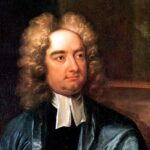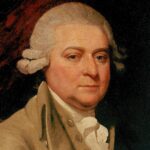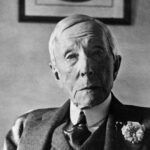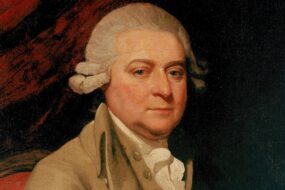
isdom of James JoyceJames Joyce, an Irish literary giant, left behind a treasure trove of thought-provoking quotes that continue to inspire and challenge readers today. In this exploration, we delve into some of his most profound statements, each a window into the complexities of human existence and the art of storytelling.
Mistakes as Portals:
“Mistakes are the portals of discovery.”
In these simple words, Joyce encapsulates the essence of growth and learning. He suggests that rather than fearing mistakes, we should embrace them as opportunities for growth and enlightenment. It’s a reminder that even our missteps can lead us down unexpected paths of discovery.
Human Nature and Society:
“There is no heresy or no philosophy which is so abhorrent to the church as a human being.”
Here, Joyce offers a poignant reflection on the tensions between institutionalized beliefs and individual autonomy. He challenges the notion of conformity, advocating for the celebration of human diversity and individuality.
The Immortality of Art:
“I’ve put in so many enigmas and puzzles that it will keep the professors busy for centuries arguing over what I meant, and that’s the only way of insuring one’s immortality.”
Joyce’s playful assertion highlights the enduring power of art to spark endless interpretation and debate. He suggests that true immortality lies not in the preservation of the physical self but in the timeless resonance of one’s creative legacy.
Gender Dynamics:
“Men are governed by lines of intellect – women: by curves of emotion.”
In this statement, Joyce reflects on the perceived differences between men and women, acknowledging the complexities of gender dynamics. While it may seem simplistic, it invites us to contemplate the intricate interplay between intellect and emotion in shaping human behavior.
Love for Dublin:
“When I die Dublin will be written in my heart.”
Joyce’s deep affinity for his native city shines through in this heartfelt declaration. It speaks to the profound connection between person and place, capturing the essence of home and belonging.
National Identity:
“A nation is the same people living in the same place.”
In this succinct definition of a nation, Joyce emphasizes the importance of shared identity and geography in shaping collective consciousness. It’s a reminder that beyond political borders, our common humanity unites us.
The Influence of Shakespeare:
“Shakespeare is the happy hunting ground of all minds that have lost their balance.”
Joyce’s wry observation underscores the enduring influence of Shakespearean literature on the human psyche. He suggests that in times of uncertainty, the timeless wisdom of the Bard provides solace and inspiration.
Artistic Irresponsibility:
“Irresponsibility is part of the pleasure of all art; it is the part the schools cannot recognize.”
Here, Joyce challenges conventional notions of artistic discipline, advocating for the freedom to explore and innovate without constraint. He celebrates the inherent messiness of creativity, rejecting rigid academic standards in favor of unfettered expression.
The Language of Action:
“The actions of men are the best interpreters of their thoughts.”
In this insightful observation, Joyce emphasizes the importance of deeds over words in understanding the true nature of individuals. It’s a reminder that authenticity lies not in rhetoric but in the tangible impact of one’s actions.
Embracing Passion:
“Better pass boldly into that other world, in the full glory of some passion, than fade and wither dismally with age.”
Joyce’s exhortation to embrace passion speaks to the transformative power of living life to the fullest. It’s a call to reject complacency and embrace the vibrancy of existence, regardless of the inevitable passage of time.
In the tapestry of James Joyce’s words, we find a rich tapestry of wisdom, wit, and wonder. His insights into the human condition continue to resonate across generations, inviting us to ponder the mysteries of existence and the beauty of the written word.








